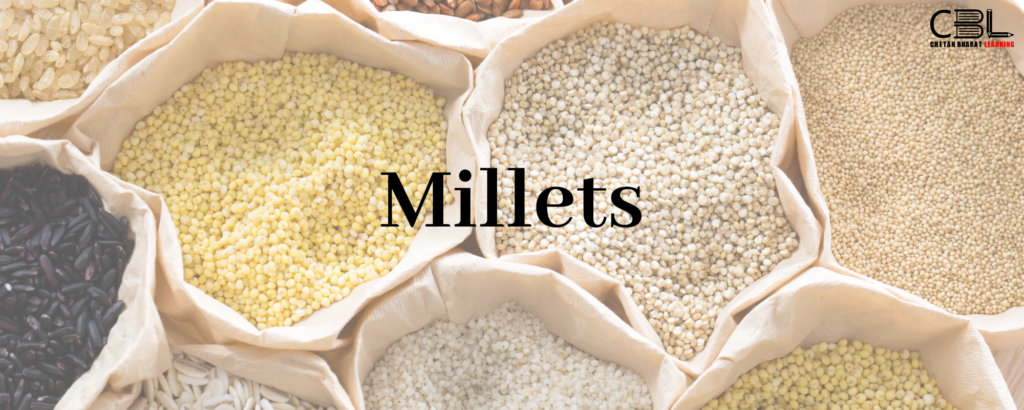Important for
Prelims: Science & Technology
Mains: General Studies Paper III

Nutritional Erosion of Millets after Processing
- The U.N. Food and Agriculture Organisation (FAO) has declared 2023 to be the ‘International Year of Millets’, giving these crops a shot in the arm even as countries worldwide are looking to them for their ability to grow in environmental conditions that the climate crisis is rendering more common.
- Moreover, Millets are becoming more popular in India as well because of their low input requirements and high nutritional density, both of which are valuable for a country whose food security is expected to face significant challenges in the coming decades.
- However, the consumption of millets faces one threat that has already overtaken India’s major food crops: grain-processing leading to nutritional erosion of millets.
What are Millets ?
- Millets are fundamentally grasses. They are cultivated worldwide, but especially in the tropical parts of Africa and Asia, as cereal crops.
- Some of the more common varieties include pearl millet ( Cenchrus americanus), barnyard millet ( Echinochloa utilis), finger millet ( Eleusine coracana), and foxtail millet ( Setaria italica).
- India is the world’s largest producer of millets, accounting for over 40% of pearl millet production and over 8% of sorghum production in 2021-2022.
- Millets are drought-tolerant and thrive on marginal land.
- In addition to this, their nutrient content includes carbohydrates, proteins, fibre, amino acids, and various minerals, and different millet varieties have different nutrient profiles.
Nutritional Erosion of Millets
- Husk Removal : Reduction of phytic acid and polyphenol contents.
- Decortication : Removal of crude and dietary fibre.
- Milling and Sieving : Reduction of nutrient content due to loss of bran.
- Polishing : Removal of protein, fat, and fibre contents, as well as iron, magnesium, phosphorus, potassium, and manganese.
Read more about Millets, click here
Practice Questions for Prelims
Consider the following statements
1. Millets are fundamentally grasses.
2. Millets are becoming more popular in India as well because of their low input requirements and high nutritional density
Which of the above statements are correct?
a) 1 only
b) 2 only
c) Both 1 and 2
d) Neither 1 nor 2
Ans. c)
Mains Practice Question
Millets production comes with a lot of health, agricultural and nutritional benefits. Discuss.




Leave a Reply
You must be logged in to post a comment.